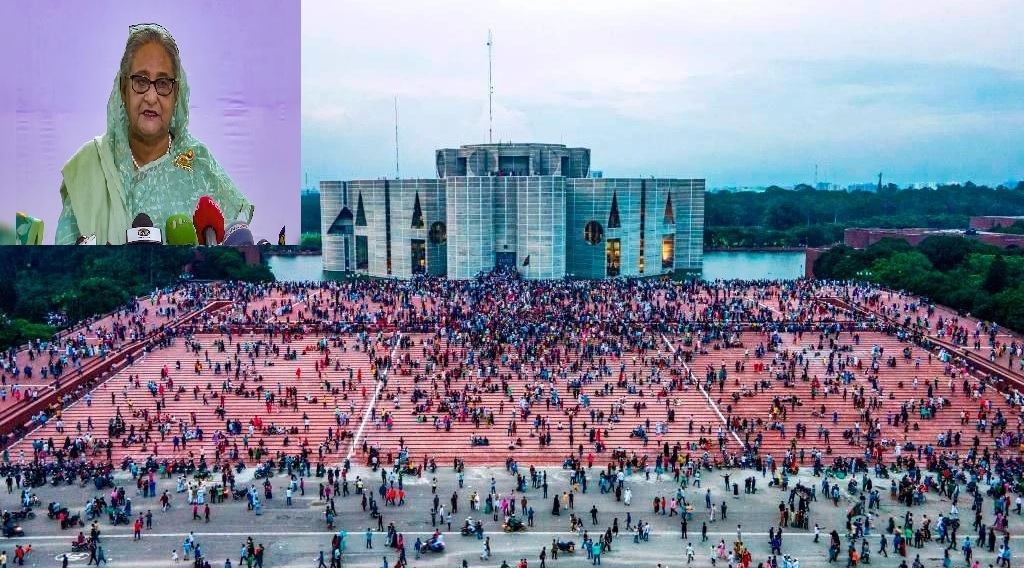B’desh President dissolves Parlt
| Date :07-Aug-2024 |

By Anisur Rahman
DHAKA,
BANGLADESH President
Mohammed Shahabuddin on
Tuesday dissolved the
Parliament to make way for the
formation of an interim administration, a day after Prime
Minister Sheikh Hasina
resigned and fled the country
following massive protests
against her Government.
“The President dissolved the
Jatiya Sangsad (Parliament)
under an executive order,” a
Bangabhaban (presidential palace)
spokesman told PTI.
“The decision to
dissolve the
Parliament was taken following the President’s discussions with chiefs of three
staff of Armed Forces, leaders
of different political parties,
representatives of civil society
and leaders of the AntiDiscrimination Student
Movement,” said a statement
issued by the president’s office. Officials
said a full-fledged
interim government
is expected to be
announced soon.
The President’s move to dissolve
the Parliament has cleared the
way for fresh elections.
The spokesman also said
Bangladesh Nationalist Party
(BNP) chief and ex-premier
Khaleda Zia was freed from
house arrest. The 79-year-old
former Prime Minister has long
battled various ailments,
including issues related to the
kidney, lung and heart. The
process to release those arrested Since July 1 has started, and
many have already been
released, he added.
The Students Against
Discrimination group earlier
set a deadline for dissolving
the 12th Parliament which was
formed after the January 7 elections installing Hasina as the
premier for the fourth straight
term. In a video posted on
social media early Tuesday,
Nahid Islam, one of the key
coordinators of the movement,
proposed Nobel laureate
Mohammad Yunus as the head
of interim government.
He said they have already
talked with 84-year-old Yunus,
who has agreed to take the
responsibility to save
Bangladesh. “No Government
other than the one proposed by the students will be
accepted.
As we have said,
no military government, or
one backed by the military,
or a government of fascists,
will be accepted,” said Nahid,
flanked by two other coordinators.
Yunus is currently out of
the country but welcomed
the ouster of Hasina’s regime,
describing the development
as the “second liberation” of
the country. He won the
Nobel Peace Prize in 2006
for his anti-poverty campaign through the Grameen
Bank, a mode; which was
replicated across continents.
He has agreed to lead the
interim government as its
chief adviser, the Daily Star
reported, citing a source.
“If the students can sacrifice so much, if the people
of the country can sacrifice
so much, then I also have
some responsibility.
Then I told the students
that I can take the responsibility,” Yunus said.
He had been in a protracted row with Hasina’s
Government due to obscure
reasons while authorities initiated a series of investigations against him after she
came to power in 2008.
He was charged under
dozens of cases. In January,
Yunus was sentenced to six
months in jail by a court on
charges of labour law violation.
Meanwhile, the death toll
in the anti-Government
protests onTuesday climbed
to 440, with 100 more deaths
reported after Hasina’s
departure, according to local
media, even as efforts were
on by the army to bring the
situation under control in
the violence-hit nation.
At least 24 people were
burnt alive last night in a
hotel owned by a leader of
Awami League in western
Joshor district, hospital
sources said.
Despite the high death toll,
there were signs of a return
to normalcy onTuesday, with
police and army patrolling
the streets, BDNews24.Com
news portal said.